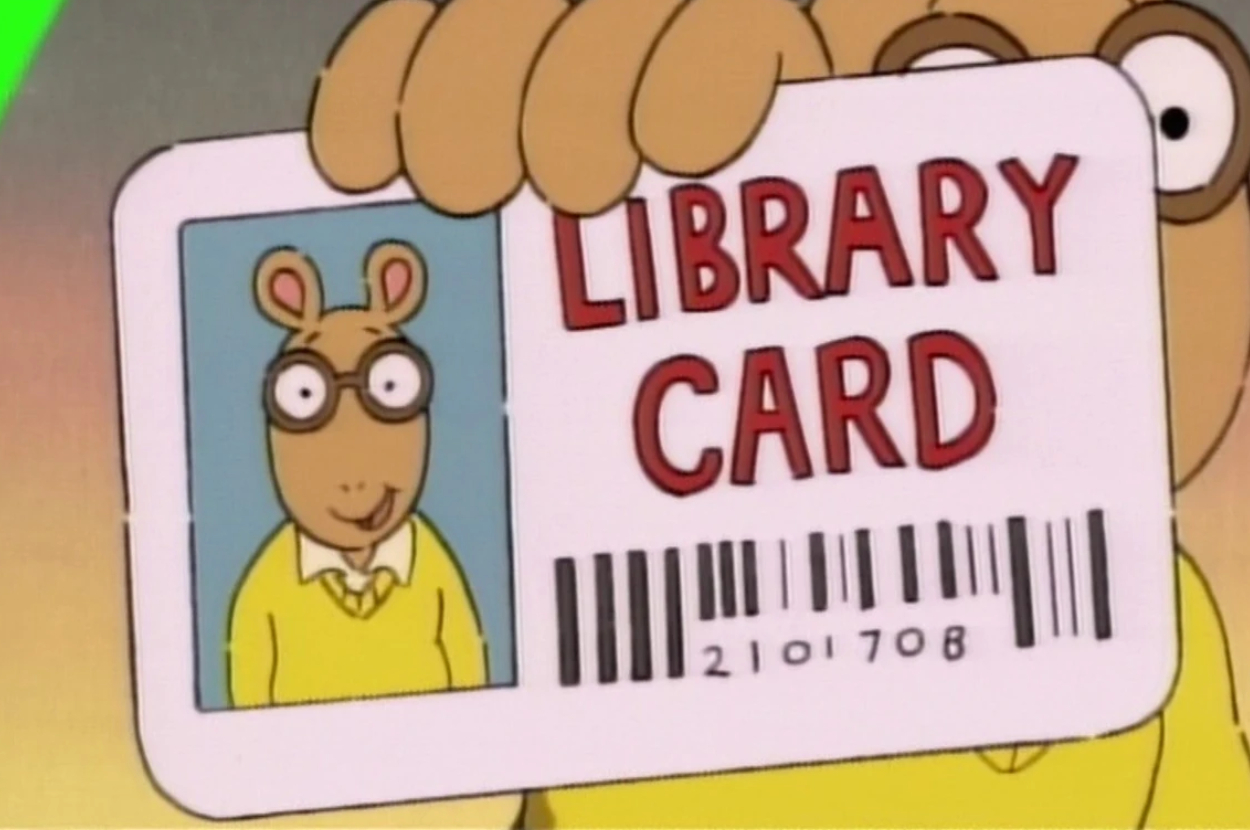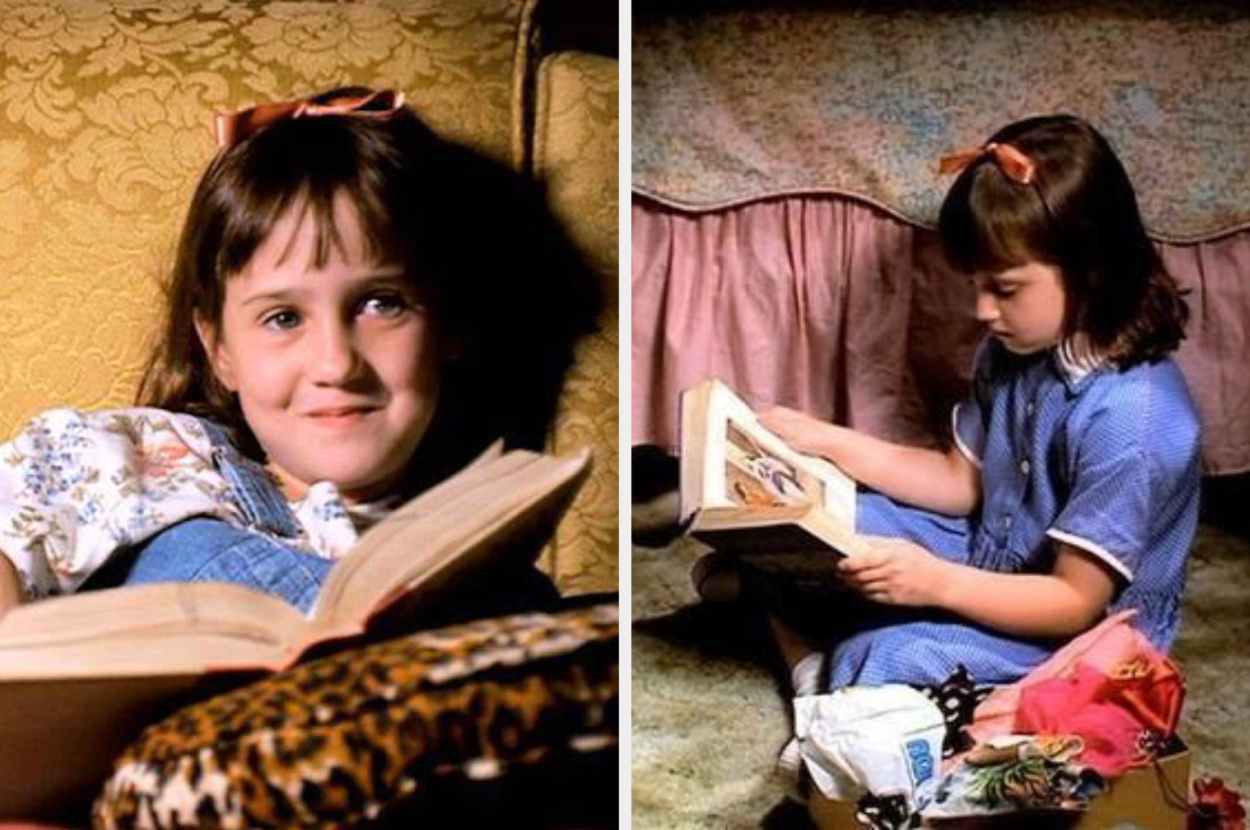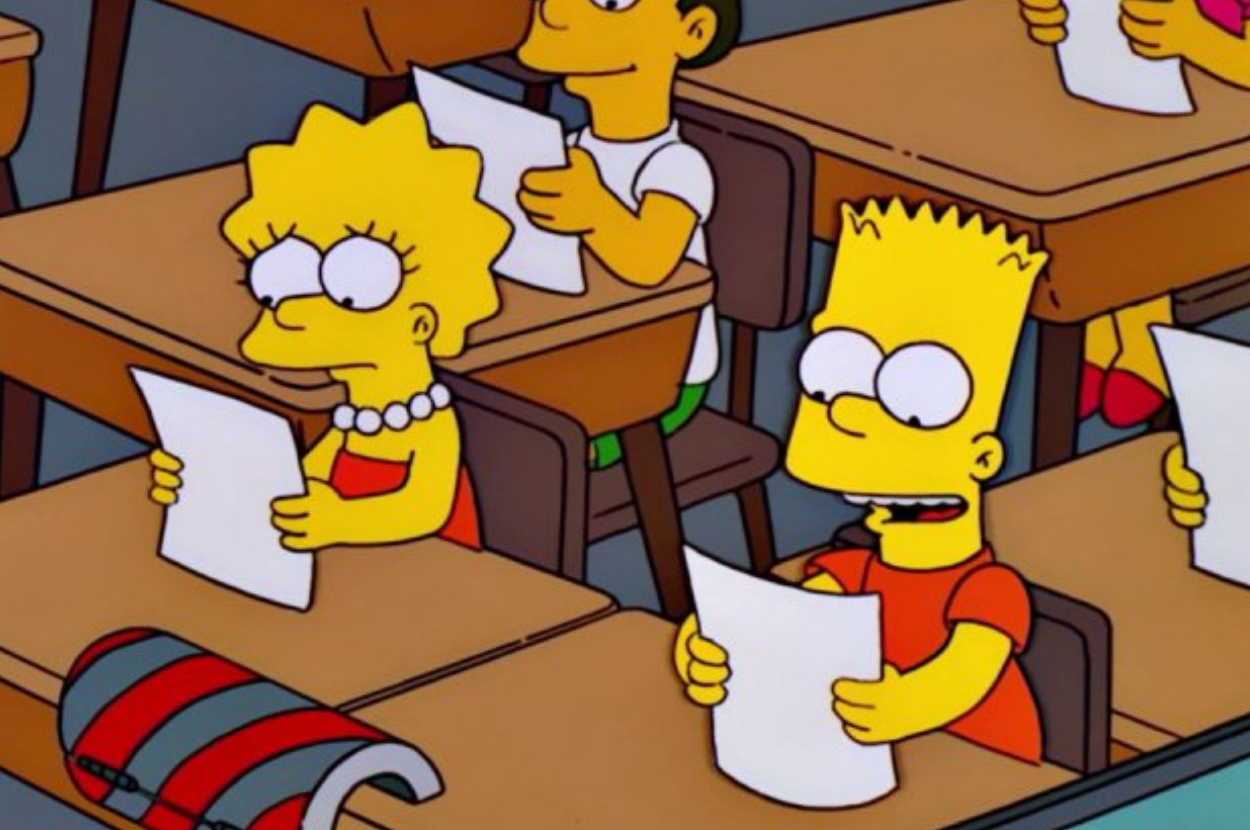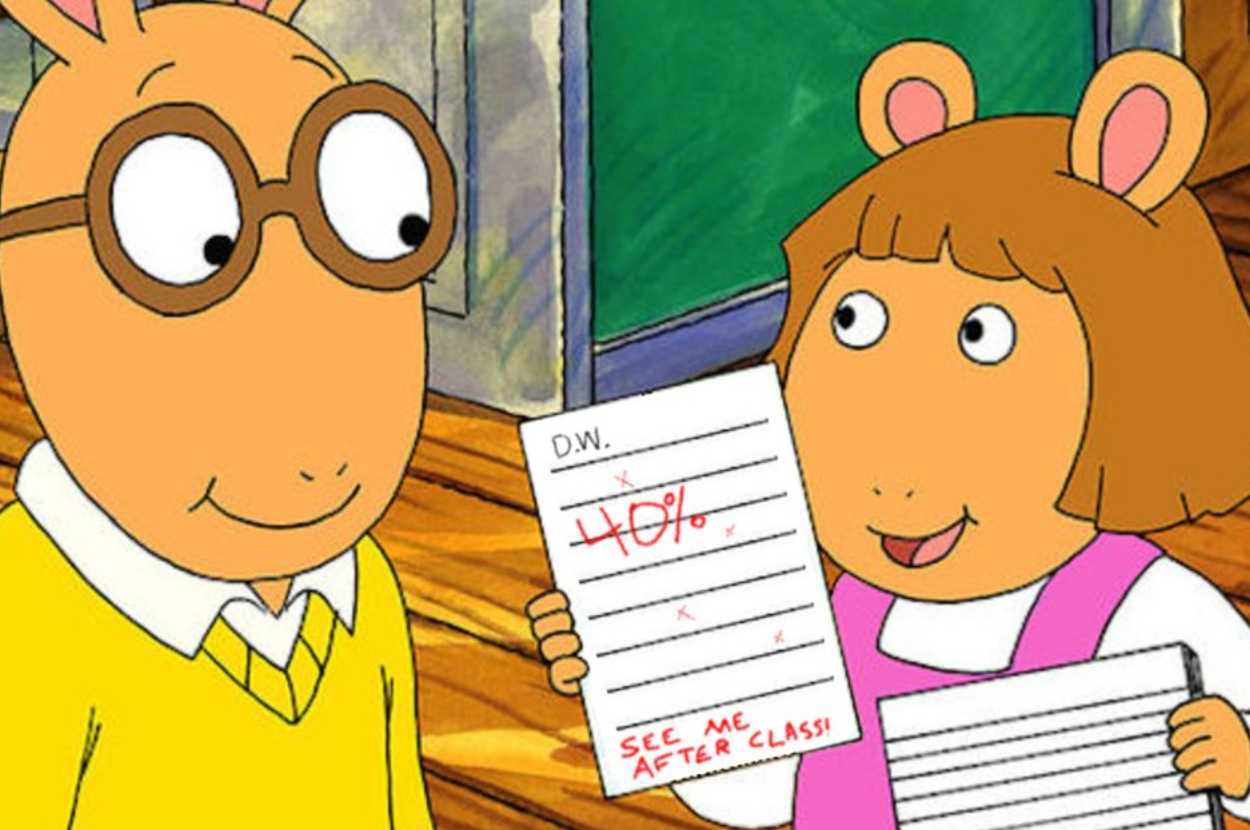I don't have kids. I don't work in a school. I don't follow educational trends. But even I have seen the viral TikToks where teachers sound the same warning: school kids these days can't read at the level they're meant to, they say. Teacher @qbthedon's viral TikTok, which asked "Why don't y'all know that your kids aren't performing on their grade level?", has earned 5.2 million views as of the time of writing, for instance.

Fellow teacher @finallyanedd said, "I've never seen anything like it," adding, "They can't write a sentence. They don't know what state they live in. They don't know what region of the country they're in." The teacher also pointed out that the attention span of the students she teaches seems to have dropped compared to previous years, to the extent that "they can't even attend to a three-minute video clip."

That sounded wild to me, but Redditors doubled down on the idea: the video above was posted to a r/TikTokCringe, with site user u/Cyberdragofinale asking "Is the situation that bad?". In response, u/bigbluewhales said, "10-year educator. It's so much worse than you think. Picture giving a whole room of 7th graders a text and they all start acting out because more than half of them can't read."

Another educator, u/Godbye18000, wrote: "I think in my class of 38 Grade 5 students, only two were at reading level. And we tested every three months. Many of them can't read most words and simply guess from context clues. Give them a brand new word, and they can't sound it out."

A 2023 New York Times article on the topic found that "Math, reading and history scores from the past three years show that students learned far less during the pandemic than was typical in previous years." They also said "most parents remain ill-informed about how far behind their children are," but suggested the damages may not be permanent.

It all sounded so extreme to me. So, I thought I'd ask teachers from the BuzzFeed Community to share whether or not they thought the TikToks about kids being less able to read, pay attention, or socialise after COVID were true — especially as we get further away from pandemic lockdowns. Here's what they said:
"It isn't great. I teach 7th grade ELA [English Language Arts], and I've definitely seen a drop in everything during the years I've been teaching. Maturity levels are at an all-time low. Behaviour is getting worse because parents don't discipline their children and get angry when the school tries to."
"So, yeah. It's a bit of a hot mess right now."
"I work with four and five-year-olds, and we use the Read Write Inc phonics scheme. Not all of the children who leave our class achieve their early learning goals, but we’re consistently gaining a 100% pass rate on the year one phonics screening tests."
"Our real concern is attention span. We’re lucky if they can sit still and concentrate for a full minute and engagement is such that we have to go over things more than we used to. This lack of attention leaks into their social and emotional development as well with them finding it difficult to form lasting bonds with their peers and develop imaginative play.
We do all we can but constantly feel like it’s an increasingly uphill struggle."

"Substitute teacher. Yes, it’s true. Kids are able to answer the questions once they are read to them, but not to read them on their own. I’ve encountered this up to in 4th grade. Started subbing last year."
"Current high school teacher here. On benchmarks, my incoming students (in 9th grade) average a 3rd or 4th grade reading level. In the span of a year, we can sometimes get them up two or three grade levels, but one of the biggest issues we’re facing is chronic absences. I have kids who miss 90+ days out of 180 school days per year. I’d say our average is probably 40-50 missed school days per year."
Author's note — the White House said in the release for their 2024 Student Achievement Agenda that "According to the Council of Economic Advisers, absenteeism can account for up to 27% and 45% of the test score declines in math and reading, respectively."
"I'm honestly torn. I teach 7th and 8th grade gifted English classes, so it's hard for me to gauge students who aren't high-achieving. That being said, the calibre of students coming into my class is dramatically different than even five years ago. The cheating is off the charts because everything is so easily accessible and they simply can't be bothered."
"It's hard to give targeted feedback all the time when you a) have upwards of 120 students, b) the writing is so bad it takes forever to grade, c) they don't look at your feedback anyway because they don't think it's important, d) due dates are now suggestions rather than mandatory... I could go on and on. They are just constantly bored and disengaged and it's really frustrating."

"I think it's really mixed, but social skills have definitely taken a hit since the pandemic. I see kids ignore each other just to play on their tablets or computers or beg to go on the computers during class. I see kids who can't problem-solve social situations on their own and require adult intervention for everything. And yet, on the other hand, I've started to see a bit of a comeback with certain things."
"I see kids in younger grades enjoying crafts and making puppets and dolls. I think it also depends on the parents — do they shove their child in front of a screen all the time or do they take the time to play and interact with their child? Trust me, teachers in younger years know which type of parent is which..."
"I teach middle school and say yes and no. Firstly, I am tired of everyone blaming COVID. Kids were behind before COVID and during COVID, they were home with their parents — not loose in the wild. Secondly, the reading (and writing) expected of kids today is not developmentally appropriate, so when people say the kids can’t read or are illiterate, one of the problems is with how we are assessing them. Thirdly, literacy is low, but let’s be honest — this is nothing new."
"What is new are the factors leading to a lack of growth regarding literacy: attention spans, screen time, lack of exposure to books in early childhood years, lack of social engagement with toddlers and infants, lack of effort/overwhelming empathy and entitlement."
"Not a teacher, but I like gossiping with them because I have three kids in public schools. An interesting observation I've heard from teachers in my area is that there is hardly a 'middle' anymore. You used to 'teach to the middle,' which meant teaching at the level of the B/C-average students. But things have shifted so that most students are either in the A/B group, or D/F group. There's no longer the middle core like there used to be."
"Do you agree with that?"

"I'm a former high school teacher. There are numerous things I can speak to, but let's talk about attention span. Remember in school when we would see a TV in the room and we would all get excited because it was going to be an easy day and all we had to do was watch a movie or documentary? Even the worst students at the time could pay attention to a TV."
"As a teacher, I could barely get my students to watch a five-minute YouTube clip that would supplement my lessons before they would start to fidget, start talking to each other, or take out their phones. They're used to getting their information through short-form videos. If the information is not provided within 20 to 30 seconds, one minute tops, then they will lose all attention. I don't want to blame the kids too much on that end. I blame parents who parked them in front of a tablet or phone since they were two, as well as the companies who know damn well how addictive their devices are."
"Yes, it's that bad. I teach 9th grade, and my students are not only borderline illiterate at the start of the year, but they get angry and defiant when asked to do anything that requires real thought. If I hand them a blank essay outline, it'll be two seconds before a kid raises their hand to say, 'What do I put for the topic sentence?'"
"If I tell them that they're supposed to write a sentence that introduces the topic of their paragraph, they say, 'Well I don't know how to do that. What do I write?' We'll go back and forth like that for a while because they'd rather try to get me to write the sentence for them than exert the effort it takes to do it themselves. The writing issues stem from their terrible reading skills. I'll ask my students to read a passage and answer a question about it, and they won't even try to get through the first paragraph before saying they don't get it."
"I teach at the college level, but this is something I started to see about five years ago that’s continued to worsen. It’s not just reading, it’s information literacy in general. It started with students emailing me to ask questions they could easily search online (not things related to the course material, but simple facts). Now it’s basic reading comprehension, like assigning a reading I assigned with no problems in previous years and suddenly getting emails saying they don’t understand it so can’t do their work."
"At this point at least a third if not more of my written assignments coming in are clearly from AI. I don’t have a problem with explaining readings to students or even using AI to assist with writing — the problem is they’re never developing or practising the skills to do those things themselves, which creates a lack of comprehension and critical thinking skills. As others have said, I can try to take time out of my curriculum to review those things, but it’s not supposed to be part of my class and takes time away from the more advanced material they’re supposed to be learning. It’s also not really something you can teach and expect students to pick up in a class period if they haven’t been practising their reading/writing/critical thinking skills for years in grade school."

Thanks to the teachers of the BuzzFeed Community who took the time to respond to the post!
Note: Submissions have been edited for length and/or clarity.
